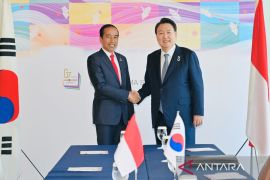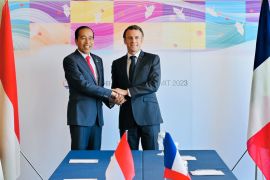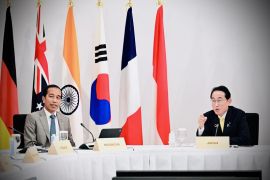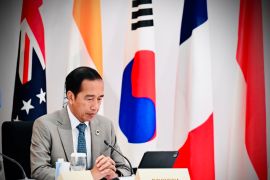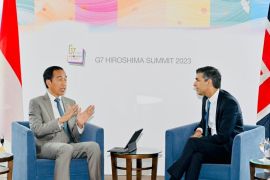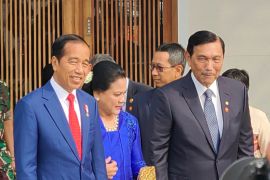We resolve to intensify our efforts to address the threat arising from foreign fighters travelling to Syria.Brussels (ANTARA News) - Leaders of the Group of Seven powers agreed Thursday to act jointly against the risk of terror attacks by European jihadists returning home from the Syrian front.
Saying "more than 30" French fighters had died in Syria, French President Francois Hollande said G7 leaders had decided "to cooperate to prevent, dissuade and punish" foreign fighters "who can undermine our security".
"We have unfortunately just had proof of that," Hollande added in reference to a fatal shooting last month at the Jewish Museum in Brussels.
It is suspected to be the work of a 29-year-old Frenchman, Mehdi Nemmouche, who spent more than a year fighting with radical jihadists in Syria.
The May 24 attack in the heart of Brussels, the first such incident in three decades, was also raised in talks between US President Barack Obama and Belgian premier Elio Di Rupo.
"We resolve to intensify our efforts to address the threat arising from foreign fighters travelling to Syria," a statement from the seven leaders said at the close of a first day of talks.
The G7 statement also denounced "the sham presidential election" in Syria Tuesday and said: "There is no future for (President Bashar al-) Assad in Syria".
The Brussels attack killed three people outright and left a fourth clinically dead and has opened eyes to the threat posed by the potential return of hundreds of well-trained and highly politicised volunteer fighters.
Europe can expect further "small-scale attacks" like the Brussels shooting, the EUs anti-terror chief Gilles de Kerchove said this week.
"I dont expect another 9/11," he said. "I dont expect a major sophisticated attack."
But with more than 2,000 Europeans in Syria or on their way there, receiving military training and becoming more radicalised, the Brussels attack was "very, very worrying" for Europes future security, he said.
On Thursday, home affairs ministers from seven European nations are to meet in Luxembourg to discuss ways to step up action in face of the threat.
Though long rejected by the European Parliament, one idea will be to agree a European Passenger Name Record (PNR) system, enabling countries to swap data on all airline passengers that notably could help trace would-be terrorists.
(G005)
Editor: Ella Syafputri
Copyright © ANTARA 2014


